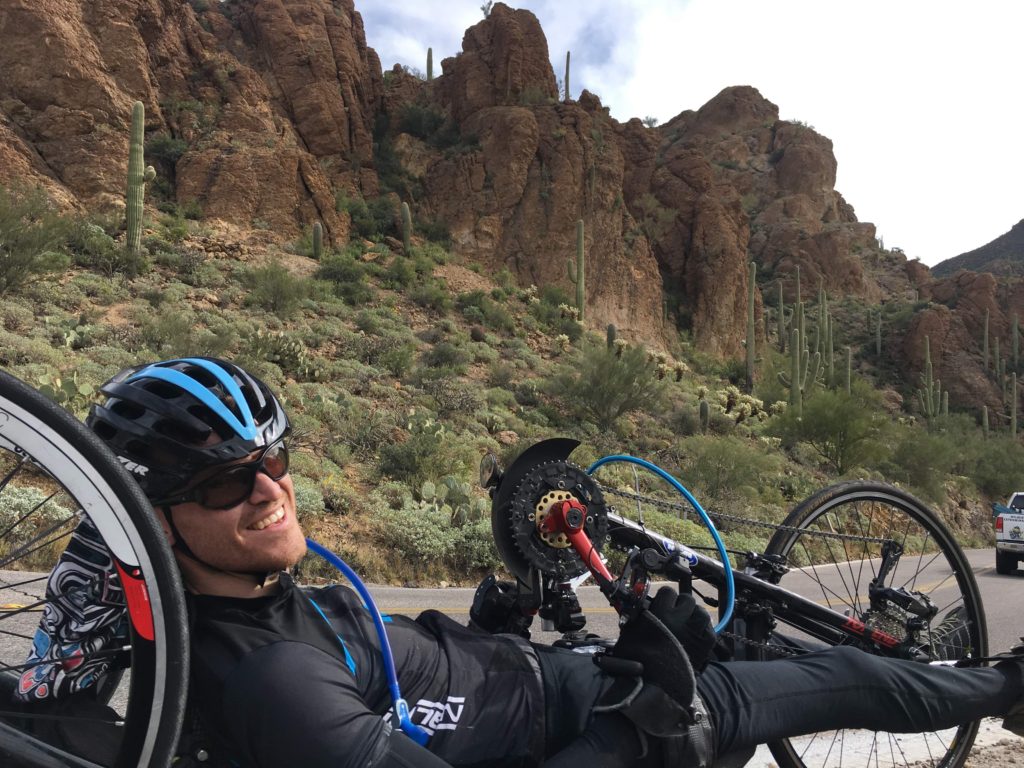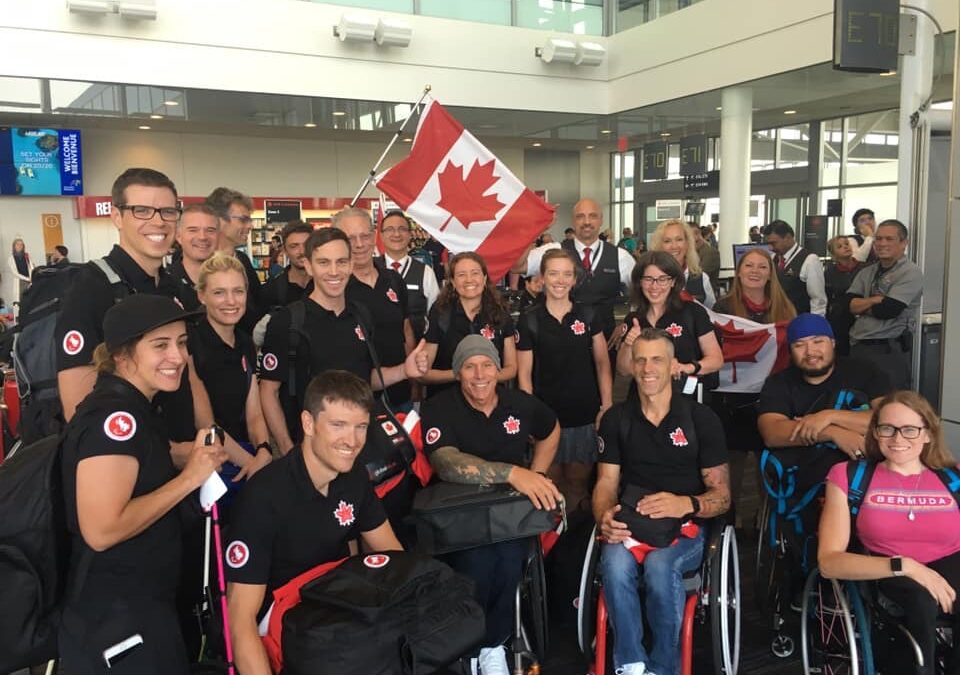Matt at the Toronto airport with the paracycling team before heading to Lima, Peru for the 2019 Para PanAm Games
Over the years I have done my share of travelling, and most of it during the last 14 years since becoming injured and becoming a daily wheelchair user. There are lots of great resources out there that talk about travelling with a mobility impairment, however, I thought that I would offer a few of the things I find most important to remember when planning a trip. This might be especially relevant given the holiday travel season that is fast approaching.
1- Be patient! We all know that travelling is annoying and stressful, and things are going to go wrong. This is especially true when travelling by plane which is notorious for delays, crowded spaces, line-ups, unexpected fees, and other stressed out travelers. Whenever I am faced with an unplanned event or stressful situation, I always try to remind myself that I chose to be there, and not be one of those people that nobody wants to deal with. I always go into travel bracing myself for something unexpected, and if things go smoothly, it is a bonus.
2- Be kind! This is kind of related to point #1, but it is worth pointing out. Most of us who travel with a mobility impairment will need someone’s help at some point, regardless of how independent we are. For me, at the very least I will need to be carried onto a plane using an isle chair, as my wheelchair is too wide to fit on the plane. It is my experience that people are extremely helpful and want to help, but they respond much better if you treat them nicely and with respect. Yes it is true, that sometimes they may not be very effective at their jobs (which at that moment involves helping me). But I always try to remember that they have no idea what I need, and this might not be something they do very often, so I cut them some slack and in return I get even better service.

3- Gate check equipment. Sometimes airlines will offer you to use their mobility equipment in an airport and get you to check your personal equipment. I never take them up on this offer and always ask to gate check. I find this approach lessens opportunity for equipment to get lost or damaged since loading the equipment on the plane only involves someone carrying it from the gate to the cargo hold. This way the people loading your equipment (who are often the ones that help you on the plane) get to meet you and you can provide them with any guidance on things to watch out for. When gate checking equipment be sure to remove any parts that can easily fall off, such as cushions or side guards.
4- Plan ahead for the worst. I always try to make sure I have medications, spare clothes, and any essential medical/urological supplies in a carry-on. This might sound like a no-brainer, but anyone with a mobility impairment knows that we often have more stuff to bring than our able bodied counterparts, so it is important to figure out what those things are that you can’t go without if a checked bag gets misplaced. I also try to have some supplies/change of clothes on hand to cover any bathroom related emergency situations that might occur. And as per #3, always ask to gate check anything that is too big to carry-on but you need and are worried about getting lost in transit.
5- Give yourself lots of time. When travelling it is always best to allow plenty of time, especially when booking flights with connections. Remember that anyone with a mobility impairment requiring extra help off the plane will be the last one off, so those tight connections might not work. Even if a connection is deemed acceptable by the airline, it never hurts to avoid those tight connections, especially if you will need a bathroom break or bite to eat before boarding your next flight.
6- Call ahead and ask lots of questions. Whenever you travel and are worried about an uncertain aspects of the trip (width of a door, getting on a plane, access to a building) always call ahead and ask lots of questions (keeping in mind tips #1 and #2). It is also recommended to let airlines know ahead of time that you require assistance so the staff can plan ahead. Over time I have gotten away from doing this each and every time, but this is mostly because I am able to tolerate the uncertainty and confident in my ability to figure things out on the spot. However, this might not be the case for you, and it is OK and important to reduce the amount of stress that travel brings by removing uncertainty by doing some good planning and asking lots of questions.
7- Talk to your friends who also have mobility impairments. I find some of the best travel resources are friends who have been to a location before. Especially if they have a similar disability and challenges as you have. Getting that 5 star accessibility approval rating from a friend can relieve a lot of stress and time spent on the phone asking questions.
Hopefully these tips help you manage the stress of travelling and make the next trip you take a great experience.
– Matt Kinnie (Tango’s resident wheelchair user)


Recent Comments